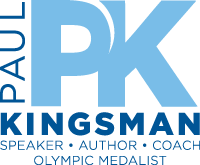Distraction-Proof® Advisor Ideas
Business-building ideas and advice to move you forward faster.
Use Words Like This to Clarify How You Help (Distraction-Proof Advisor Idea Video #251)
Share this:
“When navigating unknown terrain, would you prefer to use a compass or a map?” This is just one analogy you can use to clarify how you help people along their financial journeys.
- Make the effort to discover people’s greatest concerns. What issues do they really need solved?
- Get comfortable using a range of analogies so you can choose the illustration that most effectively helps them understand how you can help them.
- Don’t keep your analogies to yourself—actually use them in real-life conversations so people know exactly what to expect when they become your client.
When navigating unknown terrain, would you prefer to use a compass or a map?
…
Well, both are super helpful when navigating from point A to point B, but one does supersede the other. Having a map shows you the entire lay of the land, whereas having a compass shows you only the direction you are heading.
This is a helpful analogy to use when you are talking with clients about investment management versus financial planning. They’re both super-helpful tools to be using with your clients, but the plan supersedes everything. Having a financial plan in place allows clients to see where they want to end up and the choices they want to have available down the track.
The compass gets us toward the point we want to get to, like investments that your clients choose (with your help in the selection process) move them toward their objectives. But investments are only one of many tools to use along the pathway. Think about a compass: it will point true north, have you going in perfectly the right direction towards where you want to end up, and take you off a cliff while it’s still pointing true north. Or a compass might have you walk into a ravine and then need to back out only to then navigate maybe five, ten, or twenty miles around a river that blocks you from getting to the other side until you’ve gone around it. A map, on the other hand, would show you these potentially problematic details as you progress toward your end goal.
So you can see with using an analogy like this—a compass versus a map—you can get comfortable explaining how you work and some of the tools that you use. You could explain, “Navigating your future financial well-being is just like navigating a journey. We could use a compass—that might be one of our tools—but there are other tools that we also might use. You could use the sun. You could use the stars. You could use GPS. We can combine multiple tools to better ensure that we’ll get to our endpoint, knowing exactly what the journey we’re going to take will look like and having the assurance that we can also enjoy the scenery along the way, just like a financial plan allows a person to do.”
So, to get comfortable using analogies and to apply them most effectively to the person you’re talking with,
- You must know their greatest concerns. You’ve got to know what’s worrying them most—what issues are top of mind for them—which you need to solve.
- Get comfortable with analogies. Have these stories ready so you can pick and choose illustrations to use that will most effectively have this person understanding how they can benefit from using you and your services.
- Use the analogies you’ve thought of. Get comfortable using them and then actually use them with prospects and clients. Put them into practice!
Know what analogy might be more effective over another one so that when you’re conveying how you work and the help you can provide for this person, they’ll know exactly what to expect when they come on board with you as your latest, new client.
I look forward to bringing you another Distraction-Proof Advisor Idea next week.
For more Distraction-Proof Advisor videos, visit my blog directory page to link to more ideas to help you gain control, work smarter and succeed sooner.
Make sure you don’t miss any of my weekly video tips to help you focus on what really matters in your business. Subscribe to have notifications of postings delivered directly to your inbox.
- Post Categories
- Advisor Ideas Video
- Prospecting
- What to Say
Paul Kingsman
Paul Kingsman is a sought-after expert on how to be distraction-proof. Through his speaking, writing, and coaching, he teaches financial services professionals how to maintain focus and take practical daily steps to successfully grow their businesses and achieve outstanding long-term results. To find out more about Paul and how he can equip you or your team to achieve your own outstanding results, visit PaulKingsman.com.
Search
Recent Posts
- When Referrals Aren’t a Good Fit (Distraction-Proof Advisor Idea Video #350)
- Make the Most of Reconnecting (Distraction-Proof Advisor Idea Video #349)
- Two More Communication Crutches To Avoid (Distraction-Proof Advisor Idea Video #348)
- Olympic Lesson: How to Make Big Goals Reality (Distraction-Proof Advisor Idea Video #347)
- Olympic Lesson: Make Time To Give Back (Distraction-Proof Advisor Idea Video #346)
Archives
Client Testimonials
"2021 has been a great year for my business, and a lot of that was because of what I learned from you, Paul. You've been an advisor, so you get it! Thank you so much for your invaluable transformative coaching and advice!"
Michelle Glass, Glass Financial Advisors
